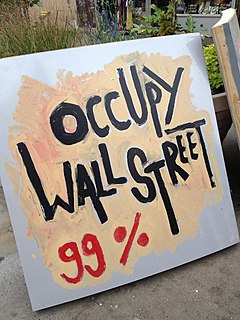 W
WPopulism refers to a range of political stances that emphasize the idea of "the people" and often juxtapose this group against "the elite" or "the establishment". The term developed in the late 19th century in connection to the Populist Party and has been applied to various politicians, parties and movements since that time, often derisively by opponents. Within political science and other social sciences, several different definitions of populism have been employed, with some scholars proposing that the term be rejected altogether.
 W
WIn 1828, Andrew Jackson, who had lost the 1824 election in a runoff in the United States House of Representatives, despite winning both the popular vote and the Electoral vote by significant margins, ran for President of the United States. He had been nominated by the Tennessee state legislature in 1825, and did not face any opposition from Democratic candidates. Jackson launched his campaign on January 8, 1828 with a major speech on the 13th anniversary of the Battle of New Orleans from 1815, thus marking the birth of the modern Democratic Party. Jackson accepted John C. Calhoun, incumbent Vice President under John Quincy Adams, as his running mate.
 W
WAnti-LGBT rhetoric are themes, catchphrases, and slogans that have been used against homosexuality or other non-heterosexual sexual orientations in order to demean lesbian, gay, bisexual, and transgender (LGBT) people. They range from the demeaning and the pejorative to expressions of hostility towards homosexuality which are based on religious, medical, or moral grounds. It is a form of hate speech which is illegal in countries such as the Netherlands, Norway, and Sweden.
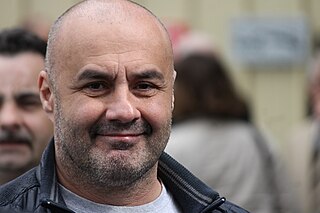 W
WSerge Élie Ayoub is a French political activist associated with the far-right and formerly the hooligan movement.
 W
WVirginie Tellenne better known by her alias Frigide Barjot, is a French humorist, columnist and political activist. A former socialite of the Parisian nightlife, who organized events defending the Catholic faith in the 2000s, Barjot rose to prominence in the early 2010s in France as a vocal campaigner against same-sex marriage and LGBT adoption.
 W
WNoel Pemberton Billing, sometimes known as Noel Pemberton-Billing, was a British aviator, inventor, publisher, and Member of Parliament for Hertford. He founded the firm that became Supermarine and promoted air power, and held a strong antipathy towards the Royal Aircraft Factory and its products. He was noted during the First World War for his populist views and for a sensational libel trial.
 W
WA caudillo is a type of personalist leader wielding military and political power. There is no precise definition of caudillo, which is often used interchangeably with "warlord" and "strongman." The term is historically associated with Spain, and with Hispanic America after virtually all of that region won independence in the early nineteenth century.
 W
WChavismo, also known in English as Chavism or Chavezism, is a left-wing political ideology based on the ideas, programs and government style associated with the former Venezuelan President Hugo Chávez that combines elements of democratic socialism, socialist patriotism, Bolivarianism, and Latin American integration. Supporters of Chávez and Chavismo are known as Chavistas.
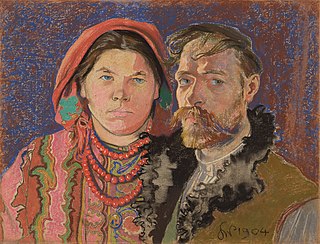 W
WChłopomania or Khlopomanstvo are historical and literary terms inspired by the Young Poland modernist movement and the Ukrainian Hromady. The expressions refer to the intelligentsia's fascination with, and interest in, the peasantry in late-19th-century Galicia and right-bank Ukraine.
 W
WA demagogue or rabble-rouser is a political leader in a democracy who gains popularity by arousing the common people against elites, especially through oratory that whips up the passions of crowds, appealing to emotion by scapegoating out-groups, exaggerating dangers to stoke fears, lying for emotional effect, or other rhetoric that tends to drown out reasoned deliberation and encourage fanatical popularity. Demagogues overturn established norms of political conduct, or promise or threaten to do so.
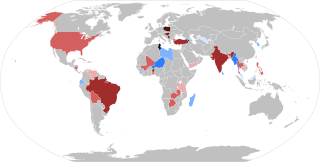 W
WDemocratic backsliding, also known as autocratization and de-democratization, is a gradual decline in the quality of democracy and the opposite of democratization. If unchecked, democratic backsliding results in the state losing its democratic qualities, becoming an autocracy or authoritarian regime. Democratic decline is caused by the state-led weakening of political institutions that sustain the democratic system, such as the peaceful transition of power or free and fair elections. Although these political elements are assumed to lead to the onset of backsliding, other essential components of democracy such as infringement of individual rights, especially freedom of expression, question the health, efficiency and sustainability of democratic systems over time.
 W
WFascism is a form of far-right, authoritarian ultranationalism characterized by dictatorial power, forcible suppression of opposition, and strong regimentation of society and of the economy, which came to prominence in early 20th-century Europe. The first fascist movements emerged in Italy during World War I, before spreading to other European countries. Opposed to anarchism, democracy, liberalism, and Marxism, fascism is placed on the far right-wing within the traditional left–right spectrum.
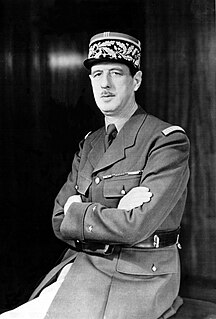 W
WGaullism is a French political stance based on the thought and action of World War II French Resistance leader Charles de Gaulle, who would become the founding President of the Fifth French Republic. De Gaulle withdrew French forces from NATO Command, removed Allied bases from France, as well as commenced France's nuclear programme, actions predicated on his view that France would not be subordinate to other nations.
 W
WHeia Norge is a moniker in the newspaper Verdens Gang, Norway's largest newspaper from 1981 to 2010.
 W
WA caudillo is part of the larger Iberian tradition of authoritarian leaders, with roots in the Iberian past, particularly in the Reconquista. A number of military leaders who were part of the Spanish American struggle for independence took on political roles in during the establishment of new sovereign nation-states. The establishment of military strong men as the head of new national governments did not generally come via elections, but many did have strong popular support. Caudillos often have a personalist connection with their popular followers, combining charisma and machismo ("manliness"), access to political and economic power. They often desire to legitimize their rule. Many caudillos brought order to their areas of control, but also resorted to violence with their armed supporters to achieve it. The early nineteenth century has been considered the "Age of Caudillos," but authoritarian regimes existed in the twentieth century as well, with caudillismo casting a long shadow.
 W
WCharles William Macune was the head of the Southern Farmers' Alliance from 1886 to December 1889 and editor of its official organ, the National Economist, until 1892. He is remembered as the father of a failed cooperative enterprise by the Farmers' Alliance in Dallas, Texas, and as the creator of the Sub-Treasury Plan, an effort to provide low-cost credit to farmers through a network of government-owned commodity warehouses.
 W
WThe Nationalist was an American socialist magazine established in Boston, Massachusetts in May 1889 by adherents of the utopian ideas of writer Edward Bellamy in his 1888 book, Looking Backward. Published by a "Nationalist Educational Association" closely associated with Nationalist Club No. 1 of Boston, the magazine served as the national organ of the Bellamyite movement in the United States until being supplanted by the weekly newspaper The New Nation in 1891.
 W
WNationalist Clubs were an organized network of socialist political groups which emerged at the end of the 1880s in the United States of America in an effort to make real the ideas advanced by Edward Bellamy in his utopian novel Looking Backward. At least 165 Nationalist Clubs were formed by so-called "Bellamyites," who sought to remake the economy and society through the nationalization of industry. One of the last issues of The Nationalist noted that "over 500" had been formed. Owing to the growth of the Populist movement and the financial and physical difficulties suffered by Bellamy, the Bellamyite Nationalist Clubs began to dissipate in 1892, lost their national magazine in 1894, and vanished from the scene entirely circa 1896.
 W
WThe New Nation was a weekly newspaper launched in Boston, Massachusetts in January 1891 by the American socialist writer Edward Bellamy. The paper served as a de facto national organ of the nationwide network of Nationalist Clubs and expounded upon their activities and political ideas, which derived from the best-selling 1888 novel Looking Backward.
 W
WThe Occupy movement was an international left-wing populist socio-political movement that expressed opposition to social and economic inequality and to the lack of "real democracy" around the world. It aimed primarily to advance social and economic justice and new forms of democracy. The movement has had many different scopes, since local groups often had different focuses, but its prime concerns included how large corporations control the world in a way that disproportionately benefits a minority, undermines democracy and causes instability.
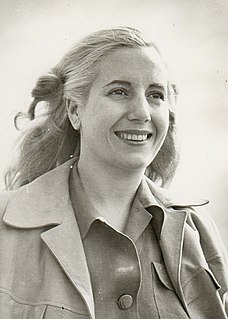 W
WMaría Eva Duarte de Perón, better known as just Eva Perón or by the nickname Evita, was an Argentine actress, politician, activist, and philanthropist who served as First Lady of Argentina from June 1946 until her death in July 1952, as the wife of Argentine President Juan Perón (1895–1974). She was born in poverty in the rural village of Los Toldos, in the Pampas, as the youngest of five children. In 1934, at the age of 15, she moved to the nation's capital of Buenos Aires to pursue a career as a stage, radio, and film actress.
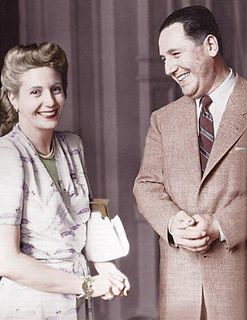 W
WPeronism, also called justicialism, is an Argentine political movement based on the ideas and legacy of Argentine ruler Juan Perón (1895–1974). It has been an influential movement in 20th and 21st century Argentine politics. Since 1946, Peronists won 10 out of the 13 presidential elections in which they have been allowed to run. The main Peronist party is the Justicialist Party. The policies of Peronist presidents have differed greatly, but the general ideology has been described as "a vague blend of nationalism and labourism" or populism.
 W
WPutinism is a word that is used to describe the political system of Russia formed during the leadership of Vladimir Putin. It is characterized by the concentration of political and financial powers in the hands of "siloviks"—current and former "people with shoulder marks", coming from a total of 22 governmental enforcement agencies, the majority of them being FSB, Police, Army and national guard of the Russian Federation. According to columnist Arnold Beichman, "Putinism in the 21st century has become as significant a watchword as Stalinism was in the 20th".
 W
WRomânul, was a political and literary newspaper published in Bucharest, Romania, from 1857 to 1905. Established as the leading voice of Romanian liberalism in the state of Wallachia, it had direct connections to the radical ideology of Western Europe. Its founder and director was the aristocrat C. A. Rosetti, known as Romantic poet, Masonic promoter and left-wing activist, seconded by the brothers Ion C. Brătianu and Dimitrie Brătianu. Românul's roots were planted in the 1848 revolutionary movement, whose press organ, Pruncul Român, was a direct predecessor.
 W
WSămănătorul or Semănătorul was a literary and political magazine published in Romania between 1901 and 1910. Founded by poets Alexandru Vlahuță and George Coșbuc, it is primarily remembered as a tribune for early 20th century traditionalism, neoromanticism and ethnic nationalism. The magazine's ideology, commonly known as Sămănătorism or Semănătorism, was articulated after 1905, when historian and literary theorist Nicolae Iorga became editor in chief. While its populism, critique of capitalism and emphasis on peasant society separated it from other conservative groups, Sămănătorul shared views with its main conservative predecessor, the Junimea society, particularly in expressing reserve toward Westernization. In parallel, its right-wing agenda made it stand in contrast to the Poporanists, a Romanian populist faction whose socialist-inspired ideology also opposed rapid urbanization, but there was a significant overlap in membership between the two groups. Sămănătorul's relationship with the dominant National Liberal Party was equally ambiguous, ranging from an alliance between Sămănătorul and National Liberal politician Spiru Haret to Iorga's explicit condemnation of 20th century Romanian liberalism.
 W
WThe Values Union is a German registered association that functions as an informal faction within the Christian Democratic Union of Germany and the Christian Social Union in Bavaria, collectively known as the Union or the Union parties. It is known for advocating conservative and economically liberal policies. The Values Union was founded in 2017. It is organised as a registered association, and has around 5,000 official members. In the 2018 leadership election the Values Union announced its support for Friedrich Merz. It has been described as the conservative wing of the CDU/CSU and as Germany’s Tea Party.
 W
WIn 1896, William Jennings Bryan ran unsuccessfully for President of the United States. Bryan, a former Democratic congressman from Nebraska, gained his party's presidential nomination in July of that year after electrifying the Democratic National Convention with his Cross of Gold speech. He was defeated in the general election by the Republican candidate, former Ohio governor William McKinley.
 W
WIn 1896, William McKinley was elected President of the United States. McKinley, a Republican and former Governor of Ohio, defeated the joint Democratic and Populist nominee, William Jennings Bryan, as well as minor-party candidates. McKinley's decisive victory in what is sometimes seen as a realigning election ended a period of close presidential contests, and ushered in an era of dominance for the Republican Party.